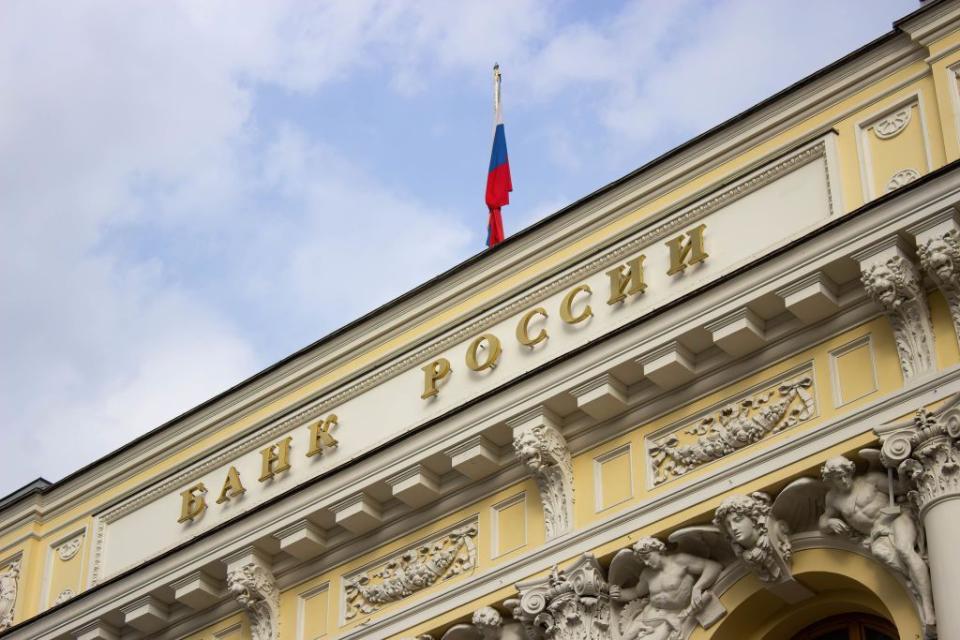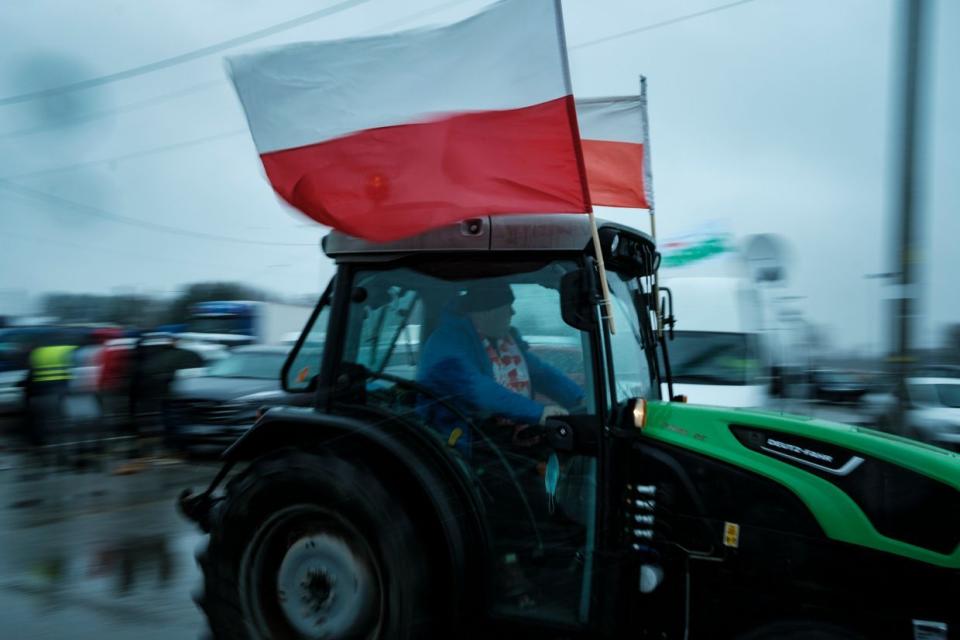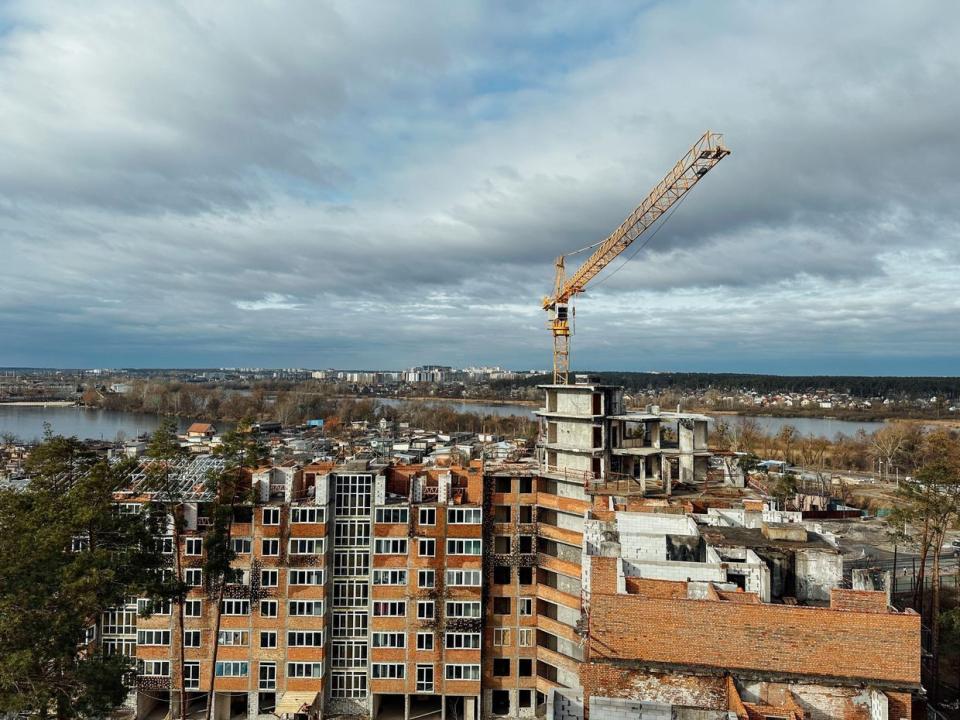Ukraine Business Roundup — February 13
The following is the Feb. 13, 2024 edition of our Ukraine Business Roundup weekly newsletter. To get the biggest news in business and tech from Ukraine directly in your inbox, subscribe here.
Filling the gaps
A team from the International Monetary Fund (IMF) is in Kyiv this week for a three-day visit to meet with Ukrainian officials. The team will head to Warsaw later this week for the IMF’s review of its loan program for Ukraine that could unlock the next $900 million tranche of aid.
The IMF delegation, led by Uma Ramakrishnan, deputy director of the IMF’s European Department, met today on Feb. 13 with Finance Ministry Serhiy Marchenko and the NBU board headed by Governor Andriy Pyshny.
Ahead of the visit, Bloomberg reported on Feb. 9 that Ukrainian officials were preparing to present the IMF delegation with a plan that included expanded domestic bond sales, tax hikes, and spending cuts to fill gaps in the budget in the event U.S. aid remains stalled in Congress.
“Measures envisaged by Plan B are currently being discussed and will potentially include the activation of the domestic borrowing market, fiscal optimization, and consolidation,” the National Bank of Ukraine told Bloomberg in a written comment.
With their plan, Ukrainian officials are hoping to reassure the IMF that Ukraine can service its debts in the absence of aid from the U.S. — a requirement of the fund’s $15.6 billion loan program to Kyiv.
On its Facebook page, the NBU said that it expects the upcoming review to be successful.
“The tasks of this year will certainly not be easier, but we are very pragmatic towards the risk assessment process. The experience of previous missions clearly demonstrates that thanks to the deep expert interaction and synergy between the teams of Ukraine and the IMF, it is possible to work tools and solutions," head of NBU Andriy Pyshny said.
Read a recent speech of Pyshny’s on our website about how the Central Bank has maintained fiscal stability in Ukraine over two years of war here.

Inching forward
The Council of the European Union adopted on Feb. 12 a set of new measures that pave the way to using profits generated from frozen Russian Central Bank assets to finance Ukraine’s reconstruction.
Western countries immobilized around $300 billion in Russian assets at the start of the full-scale invasion. Since then, Washington, Brussels, and Kyiv have discussed legal ways of channeling these funds to aid Ukraine.
The new measures set up the legislative framework through which the profits made on some of the confiscated assets could be given to Ukraine through the EU’s budget.
The Council ruled that the central securities depositories (CSDs) holding more than 1 million euros ($1.07 million) in assets from the Russian Central Bank must separate any profits generated from the primary accounts.
This mostly concerns Euroclear, a Belgium-based financial services company that holds about 191 billion euros ($205 billion) in Russian assets. The company has said that the proceeds from those assets are around 4 billion euros ($4.3 billion) per year.
The decision is the next step in potentially enabling part of the frozen Russian assets to be ultimately redirected to help pay for Ukraine's reconstruction, the European Council said in a statement following the announcement.
Ukraine’s Foreign Minister Dmytro Kuleba welcomed the decision, but urged further, “ambitious and prompt” steps to help Ukraine get access to these funds. “Ukraine is ready to continue working with partners on reaching our ultimate goal: making Russian assets available to Ukraine. The aggressor must pay,” he wrote on X.
With Ukraine’s reconstruction costs standing at over $400 billion and counting and an expected $37 billion in external financing needs for 2024, the amount Ukraine stands to get with the decision is a drop in the bucket.

Privatization perils
Hungarian banking group OTP Bank, once on Kyiv's international sponsors of war list, has expressed interest in buying Ukraine's recently nationalized Sense Bank, Ukrainska Pravda reported on Feb. 12, citing unnamed sources familiar with acquisition talks.
The news comes several weeks after Ukraine's Deputy Finance Minister Yurii Drahanchuk said that foreign investors were interested in purchasing Sense Bank and another state-owned bank, Ukrgasbank. Kyiv-based investment bank Dragon Capital is also reportedly eyeing Sense Bank.
Both banks were among the 10 most profitable banks in Ukraine in 2023. Ukraine completed the nationalization of Sense Bank, previously known as Alfa-Bank Ukraine and owned by sanctioned Russian billionaire Mikhail Fridman, in July 2023.
OTP Bank is Hungary's largest commercial bank and one of the largest financial service providers in Central and Eastern Europe. If OTP and Sense Bank were to merge, the bank would become Ukraine’s fourth-largest bank in terms of net assets after PrivatBank, Oschadbank, and Ukreximbank, all of which are state-owned banks.
It’s unclear how such a deal would even be allowed to go through as the Hungarian bank still operates in Russia. Ukraine also only temporarily suspended the bank from its list of “international sponsors of war” to help unblock EU military aid Hungary had been opposing.
Regarding Ukrgasbank, Ukraine’s Finance Ministry is continuing its years-long negotiations with the International Finance Corporation to acquire a stake in the bank as part of its privatization process.

Protests… again
Polish farmers have again taken to the border with neighboring Ukraine in their new month-long strike against EU policies and unfair competition from abroad.
The Solidarity trade union announced on Feb. 9 that it would begin blocking roads and border crossings with Ukraine until March 10. The group announced on Feb. 13 that it would block all border crossings with Ukraine on Feb. 20, escalating tensions further.
Farmers across Europe have been protesting what they say is increased competition from other countries, particularly from Ukraine, as well as EU policies meant to fight climate change that imposes restrictions on farmers.
The Solidarity trade group has placed the blame squarely on the Polish authorities and the European Commission for what they say is inaction.
“The passivity of the Polish authorities and declarations of cooperation with the European Commission ... regarding the import of agricultural produce and food products from Ukraine leave us with no other choice but to declare a general strike,” the union said in a statement on Feb. 2.
Ukraine’s Agriculture Ministry confirmed to the Kyiv Independent that Kyiv and Warsaw are negotiating. However, there appears to be little end in sight over the agricultural dispute that began back in April 2023.
Meanwhile, Ukraine’s agricultural sector is also concerned that the protests are fanning anti-Ukrainian sentiment in one of its biggest allies in the fight against Russia.
Read business reporter Dominic Culverwell's full report here.

Chasing dreams
The procurement of goods and services has long been fertile ground for corrupt actors in Ukraine. Whether it's bribery, bid rigging, favoritism, or collusion between suppliers and politicians, the country has seen and continues to see it all.
Some people in Ukraine’s government want to make sure that the massive rebuilding of the country that will have to take place following the war doesn’t also become a feeding frenzy for those looking to get a piece of the pie.
Enter DREAM — Ukraine’s Digital Restoration EcoSystem for Accountable Management platform to track reconstruction projects all over a very large country, some of which are already happening now.
At its core, DREAM is an online database for every type of reconstruction project across the country, Dominic Culverwell writes in his latest. Anyone can scroll through the website and track the progress of projects as well as access all data to see where the money is coming from and going.
In addition to providing open data for law enforcement and NGOs to keep an eye on corruption, it’s also a centralized platform for businesses and investors to find the tens of thousands of reconstruction projects spread throughout Ukraine.
Still in its early days, it remains to be seen if DREAM will work in Ukraine’s convoluted reconstruction landscape, Culverwell writes.
Read the full story here.
What else is happening
Nasdaq announces partnership with Ukraine. The leading financial exchange company Nasdaq announced a memorandum of understanding with Ukraine on Feb. 12, establishing plans for Nasdaq to provide assistance to Ukraine's economy and capital markets. The U.S. Agency for International Development (USAID) facilitated the agreement. "This new partnership between Nasdaq and the government of Ukraine demonstrates that Ukraine is open for business, even as they continue to fight for their freedom," said USAID administrator Samantha Power. "Investors are already demonstrating their confidence in Ukraine’s future – which attracted more than $4 billion in foreign direct investment in the first three quarters of last year – and this partnership further underscores the attractive investment opportunities Ukraine offers,” she said.
Kyiv School of Economics: Russia has caused over $155 billion in damages in Ukraine since start of full-scale invasion. The total damages in Ukraine caused by Russia's war have reached $155 billion as of January, the Kyiv School of Economics (KSE) said in its latest report published on Feb. 12. According to the most recent figures, Russia's war has damaged or destroyed nearly 250,000 residential buildings, including houses, apartment buildings, and dormitories. Direct damage to the country’s housing stock is estimated at $58.9 billion in damages, an increase of $4.8 billion compared to the end of 2023. As of the beginning of 2024, the damage to infrastructure has reached $36.8 billion, and the direct damages to industry and businesses have already reached $13.1 billion, KSE said. The Kyiv School of Economics regularly publishes data on damages caused to Ukraine by Russia's full-scale invasion as part of its "Russia Will Pay" project.
Minister: Ukraine to produce thousands of long-range drones in 2024. Ukraine has plans to produce thousands of long-range attack drones in 2024 capable of hitting targets deep in Russia, Digital Transformation Minister Mykhailo Fedorov said in an interview with Reuters published on Feb. 12. Ukraine has intensified its efforts to ramp up domestic production of attack drones, a critical tool on the battlefield, aiming to manufacture 1 million drones this year. Multiple drone strikes have been reported on oil depots and refineries in Russia in January, including Bryansk, Oryol, and Leningrad oblasts. Ukraine often does not publicly comment on strikes within Russia, but Fedorov told Reuters that the spate of strikes on oil facilities "reflected the government's progress in rapidly deregulating the drone market and increasing funding for it." Fedorov said that up to 10 companies are involved in producing long-range attack drones, adding that most companies producing long-range drones are privately owned, unlike in Russia.
Musk denies Starlink sales to Russia. Ukrainian military intelligence (HUR) and several Ukrainian media outlets came out on Feb. 11 saying that Russian forces have been using billionaire Elon Musk’s Starlink satellites on the battlefield in Ukraine, citing intercepted phone calls between Russian forces in occupied Donetsk Oblast. "A number of false news reports claim that SpaceX is selling Starlink terminals to Russia. This is categorically false," Musk said on his social media platform X. "To the best of our knowledge, no Starlinks have been sold directly or indirectly to Russia," Musk said. HUR spokesman Andrii Yusov told RBC-Ukraine on Feb. 12 that “no one claims that Starlink is officially being sold” to Russia, but that Moscow is likely acquiring the terminals through smuggling and third-party countries.
Head of sugar producers association warns of closure of Ukrainian factories due to EU import curbs. Possible restrictions on Ukrainian sugar exports to the EU may lead to the closure of sugar factories, said the acting chair of the board of the National Association of Sugar Producers of Ukraine, Nazar Mykhailovyn, the Interfax-Ukraine news agency reported on Feb. 7. The European Commission proposed on Jan. 31 that import duties on Ukrainian exports to the EU should remain suspended until June 2025, but different rules apply for "the most sensitive products," namely Ukrainian sugar, poultry, and eggs, which will be capped at levels from 2022 and 2023. Curbs "will be very detrimental" to Ukrainian sugar producers, Mykhailovyn said. "Restrictions, licensing, and bans will lead to overproduction in the current season and the closure of factories."
IAEA chief visits Zaporizhzhia nuclear power plant to assess safety. Director General of the UN’s nuclear watchdog Rafael Grossi visited the Russian-occupied Zaporizhzhia nuclear power plant in Ukraine’s south on Feb. 7 to check the status of the plant’s cooling systems and assess whether it can operate with a reduced staff. “On my 4th visit to the Zaporizhzhia nuclear power plant, assessed observance of IAEA’s 5 principles for protecting the plant & status of current power and cooling systems, levels of qualified staff, among others,” Grossi wrote on X. “These are vital assessments for the facility's safety and security — no place for complacency.” The International Atomic Energy Agency (IAEA) earlier reported that Russian occupying forces at the plant had announced that no workers employed by Ukraine’s national operator Energoatom would be allowed to work at the nuclear plant any longer. “Comparing it to the normal staff quantity, which should be over 10,000 at the station, we are currently witnessing a significant reduction by half,” he said, Suspilne reported.
Subscribe to the Newsletter
Ukraine Business Roundup
We’ve been working hard to bring you independent, locally-sourced news from Ukraine. Consider supporting the Kyiv Independent.

